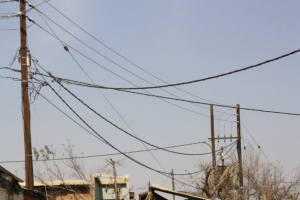
Naseerah Nanabhai
28-08-2020
Eskom emphasises the importance of educating the public about illegal connections and other issues that have an impact on the national power grid.
“It is important that communities are aware of the dangers of illegal connections, network overloading and the impact on infrastructure,” said the utility.
Since mid-May Eskom has implemented load reduction and, unlike load-shedding, this is not due to a shortage of electricity generation capacity. Load reduction is when Eskom switches off power to localised areas where illegal connections cause overload and as a result, could damage infrastructure.
“The objective of load reduction is to protect Eskom’s infrastructure by reducing electricity usage during peak times, which is when the most damage occurs, and managing the impact on the transformers and mini-substations in that area,” said Group Executive for Eskom’s Distribution Division, Monde Bala.
Culprits of illegal connections do not understand that transformers and mini sub-stations supplying areas have limited capacity. As such, when there is an increase in consumption, due to illegal connections, transformers and sub-stations cannot cope with the overload and then explode, causing the entire area to be out of power until it is restored.
Usually, transformers cannot be repaired after an explosion and so it has to be replaced at a cost of between R80 000 and R100 000. About R2 billion is lost in non-technical issues such as the effects of illegal connections.
“As part of ensuring public safety and also relieving the network of unwarranted strain, Eskom removes illegal connections and pleads with communities to uphold all safety standards to ensure maximum and continued safety for themselves and their loved ones,” Eskom said in a statement.
Electricity theft can be reported at any police station or on 08600 37566 or 0800 11 2722.







0 Comments